ISEA holds its 4th Social Enterprise Advocacy and Leveraging (SEAL) Asia Conference with more than 150 onsite and virtual participants
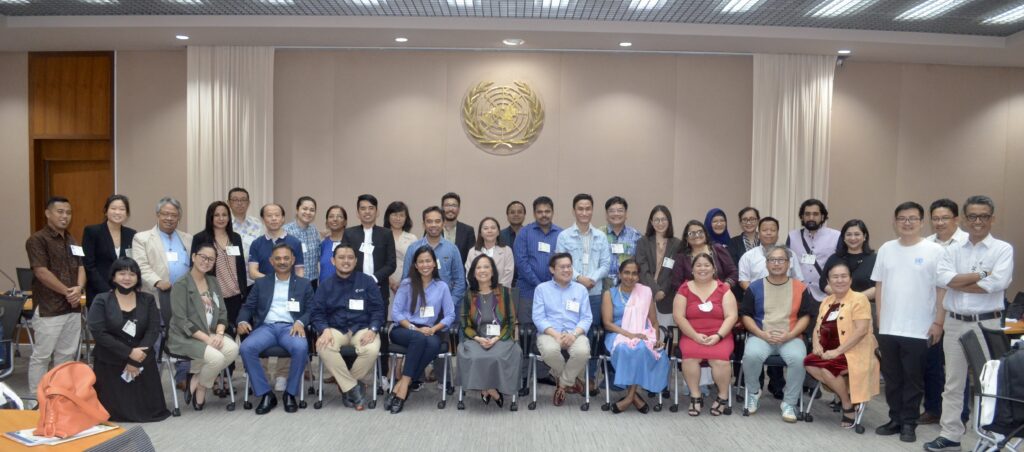
Social entrepreneurs and innovators, leaders and representatives of social enterprise resource institutions, civil society groups, business sector, government and multilateral agencies have gathered together at the 4th Social Enterprise Advocacy and Leveraging (SEAL) Asia Conference in UN Conference Center, Bangkok, Thailand from March 22 to 23, 2023. The said event’s theme is “Social Entrepreneurship, Innovation, and Partnerships: Towards Inclusive Recovery and Accelerating the Sustainable Development Goals”, which is organized as a pre-event to the Asia Pacific Forum for Sustainable Development (APFSD) by the Institute for Social Entrepreneurship in Asia (ISEA), the United Nations Economic and Social Commission for Asia and the Pacific (UNESCAP) and the Catalyst 2030, in partnership with the Asia Pacific Regional Civil Society Engagement Mechanism – Social and Community Enterprise (APRCEM-SCE) Constituency, Association of Progressive Communications (APC), the Oxfam in Asia, the Embassy of Sweden in Bangkok and the Social Enterprise Thailand (SE Thailand).
The conference’s Session 1 which is themed, “Towards Nurturing Transformational Partnerships and Women’s Economic Empowerment in Agricultural Value Chains” is a two-part panel session featured experiences and perspectives of small and medium enterprises, social enterprises, corporate agribusinesses, and government multilateral agencies on the Benchmarks and Guidelines for Transformational Partnerships and Women’s Economic Empowerment in Agricultural Value Chains.
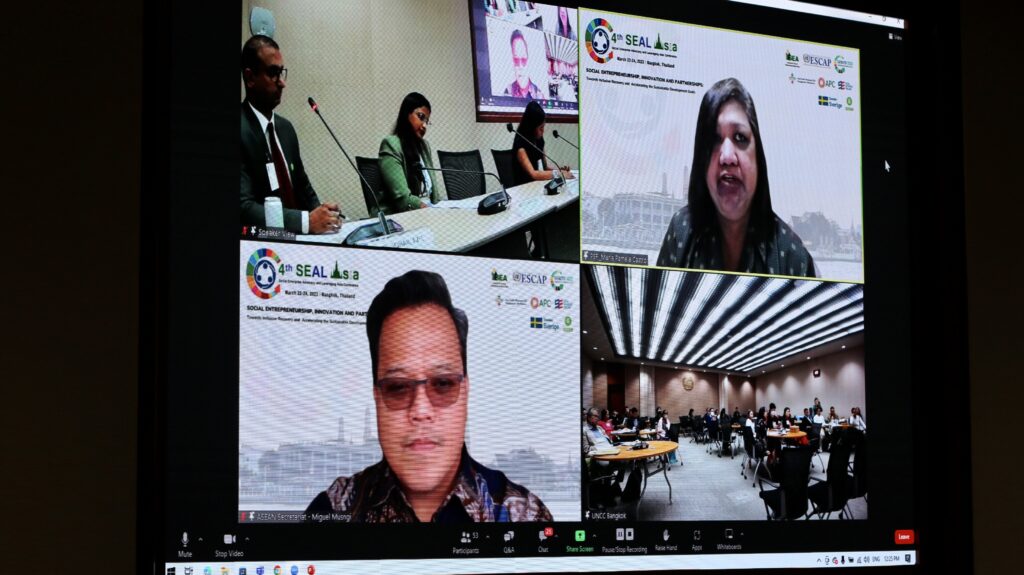
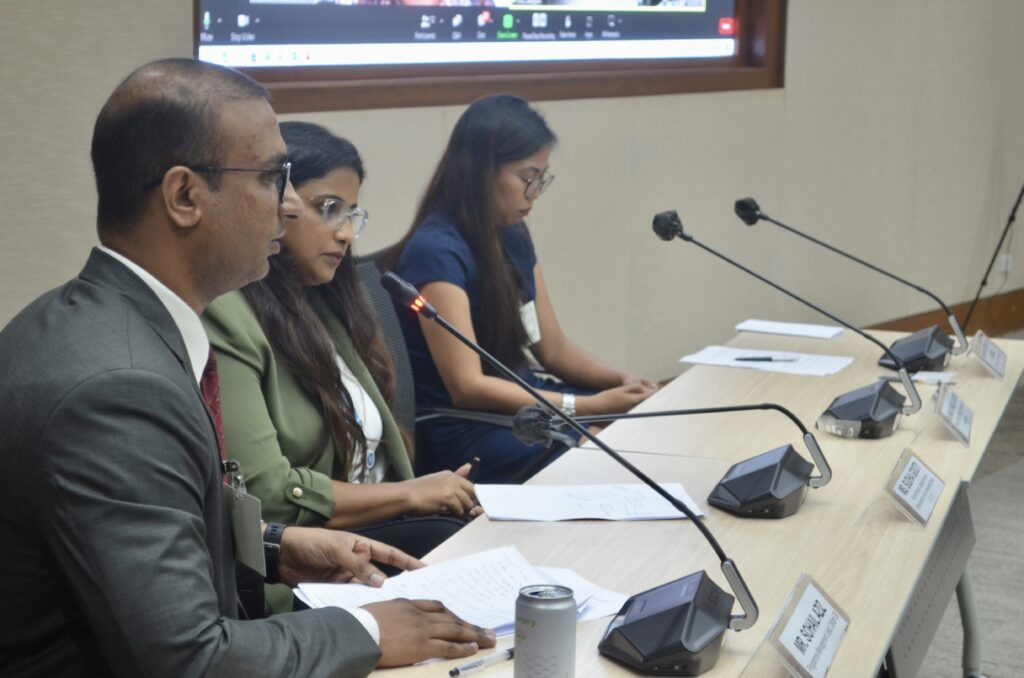
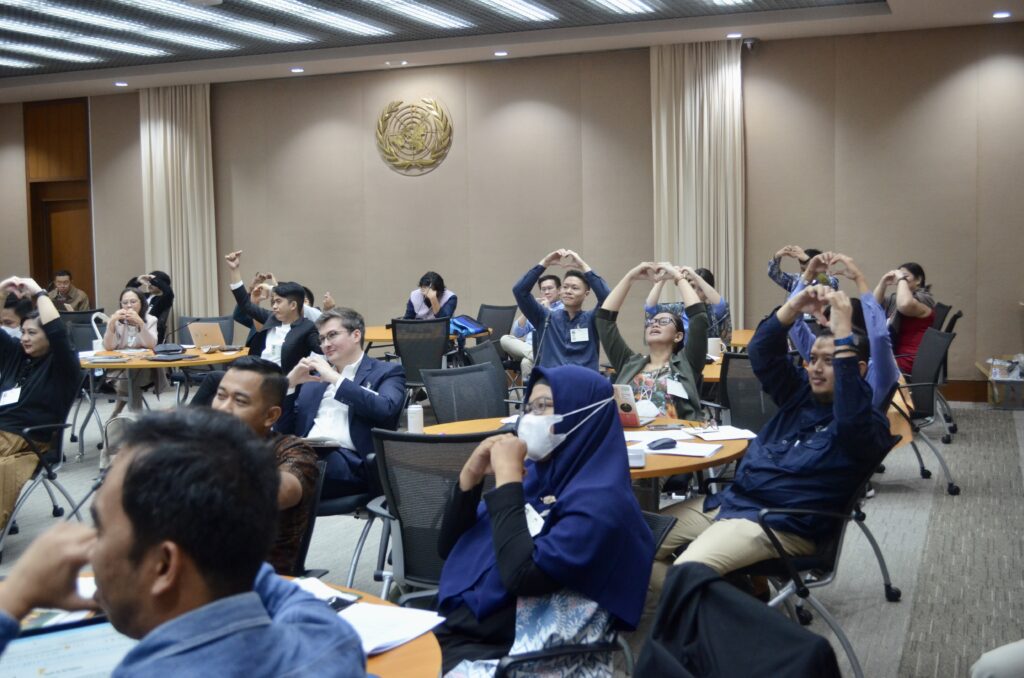
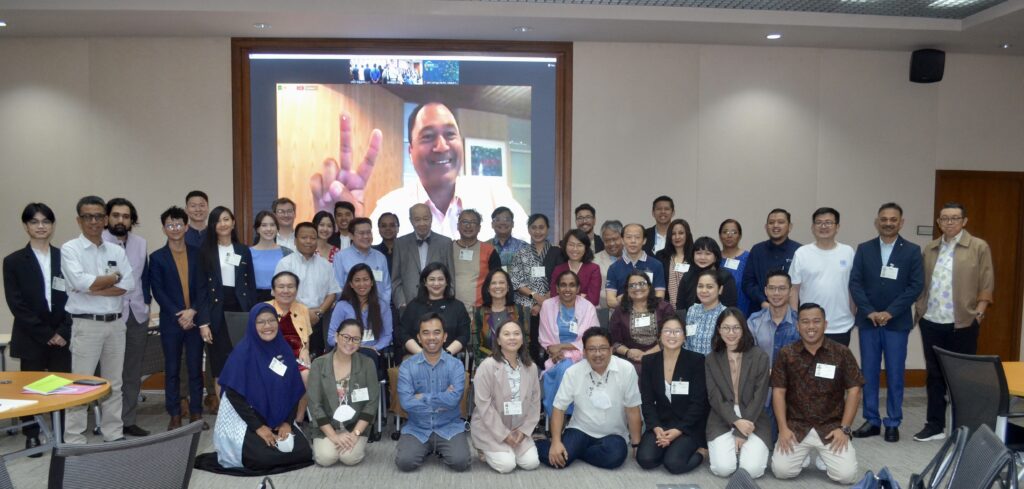
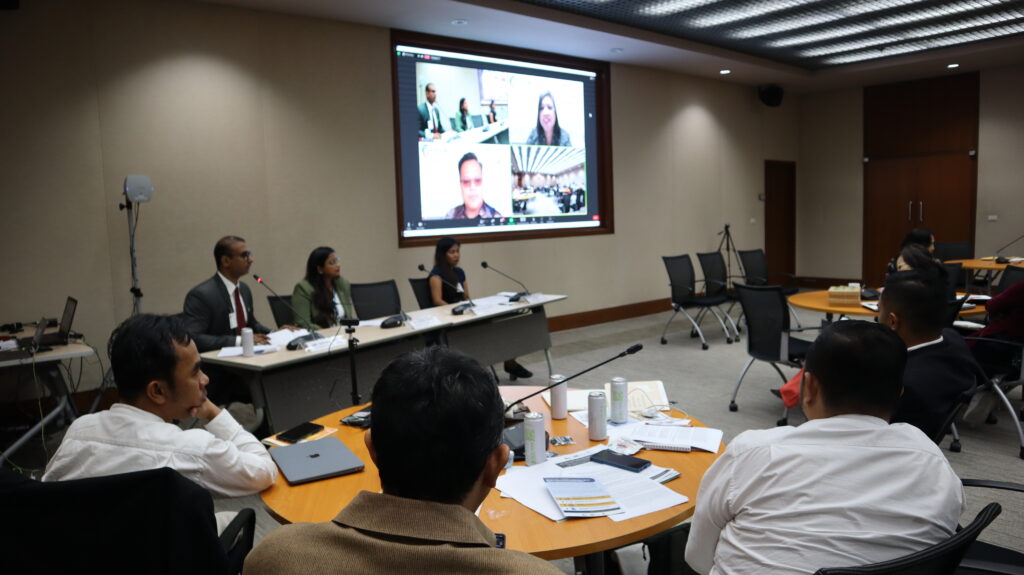
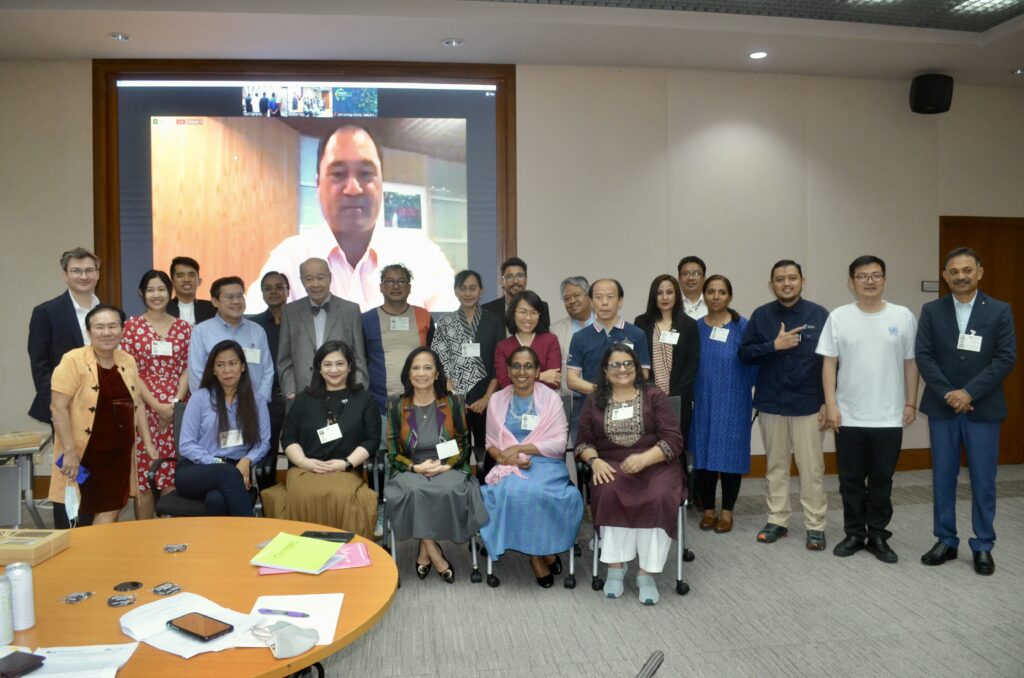
The first panel featured Ms. Charlene Tan, Founder and CEO of Good Food Community (Philippines); Mr. Paulus Sigit, Supervisor of Toko Trubus (Indonesia); and Ms. Ho Thu Phuong Anh, Director of Vien Minh Company (Vietnam). They each discussed their enterprise/company profile, the characteristics of their partner communities, and the impacts of the COVID-19 pandemic on their operations, before delving into their experience implementing the BTP WEE in AVCs. The panel of speakers also shared the challenges, opportunities, and lessons learned in their adoption of the Benchmarks. The first panel was moderated by Ms. Pham Oanh Kieu, Founder and CEO of the Centre for Social Initiatives Promotion (CSIP) and Co-Convener of the Women’s Empowerment, Livelihoods and Food in Agricultural Value Chains (WE LIVE FOOD) Platform.
The second panel session featured Ms. Maria Katrina Bayog-Mercado, CSR Manager of PILMICO & Gold Coin Group (Philippines); Ms. Maria Pamela Castro, Manager of Pilipinas Shell (Philippines); Mr. Miguel Musngi, Assistant Director of Poverty Eradication and Gender Division, ASEAN Secretariat; and Ms. Sudha Gooty, Program Manager of Catalyzing Women’s Entrepreneurship, Social Development Division, UN ESCAP. Moderated by Mr. Sohail Aziz, Programme Management Lead from Oxfam Great Britain, the session was focused on the perspectives of different stakeholders on the development and usefulness of the Benchmarks and Transformational AVC Guidelines and the opportunities for sustaining and scaling the initiative in Southeast Asia. Mr. Aziz also gave a brief background on the Transformational AVC Guidelines, highlighting its 5 elements: (1) Innovation towards food security, resilience, and empowerment of small producers; (2) Women’s economic empowerment (WEE) across all functions of value chain; (3) Sustainable consumption and production towards a climate resilient and green economy; (4) Recognition and support for social enterprises and exclusive businesses as enabling partners; and (5) Cross-sectoral and multi-stakeholder platforms towards accelerating the sustainable development goals (SDGs).
While Ms. Bayog-Mercado of PILMICO & Gold Coin Group and Ms. Castro of Pilipinas Shell each introduced their company and their WEE initiatives, highlighting the alignment and relevance of the Transformational AVC Guidelines to their work, Mr. Musngi from the Poverty Eradication and Gender Division of the ASEAN Secretariat and Ms. Gooty from the Catalyzing Women’s Entrepreneurship, Social Development Division at UN ESCAP shared potential opportunities and engagement points for applying the Benchmarks and the Transformational AVC Guidelines in their organization’s work. Mr. Musngi discussed several ASEAN frameworks and key initiatives on SDGs that provide the mandate for ASEAN’s strengthened stakeholder engagement, specifically on gender equality and women empowerment and rural development initiatives. He briefly discussed the ASEAN’s 10-year development roadmap, the ASEAN Gender Mainstreaming Strategic Framework, and ASEAN’s common platforms on SDGs to possibly introduce the Benchmarks and Guidelines. Similarly, Ms. Gooty also shared opportunities on where the Benchmarks and Guidelines can be introduced in UNESCAP’s work, particularly in the ASEAN region. She discussed the Policy Toolkit on Strengthening Women’s Entrepreneurship in National MSME Policies and Action Plans, led by the ASEAN Coordinating Committee on Micro, Small, and Medium Enterprises (ACCMSME) and ESCAP sharing that this has been designed as a practical tool to enable MSME agencies and other relevant stakeholders to assess gaps, take stock of opportunities, and design gender-focused interventions through national policies to advance women’s entrepreneurship in the ASEAN region. Finally, she highlighted the relevance of the Benchmarks and the Transformational AVC Guidelines in complementing this toolkit, and laying out the design considerations for future country-level interventions targeting women-led MSMEs and for forming the basis for an annual action plan for women’s entrepreneurship to strengthen policy support and create a more enabling environment and ecosystem.
